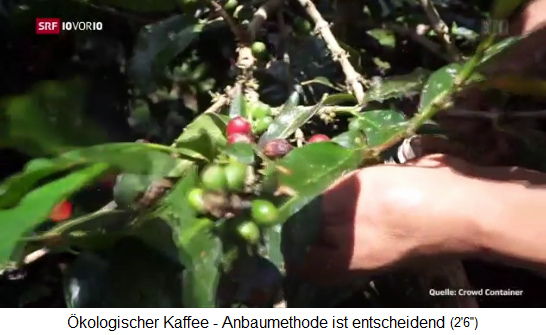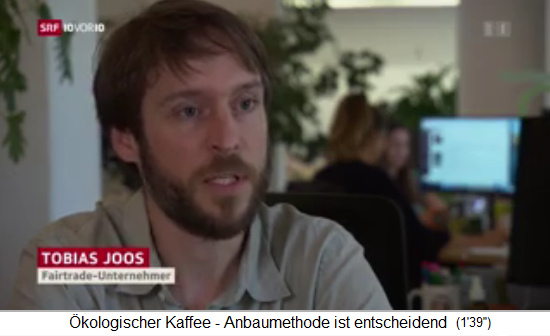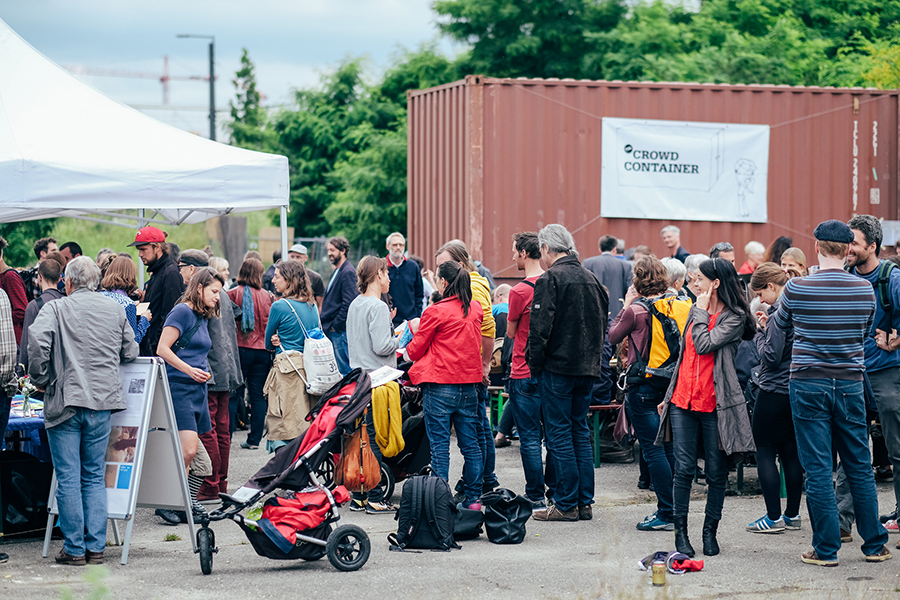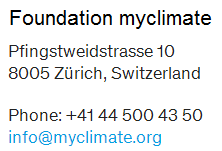|
 |
|
World map with
Brazil [16] |
Brazil: Destructive Monocultures
Monocultures are provoking the following:
-- extinction of birds and insects
-- food is poisoned with pesticides
-- use of expensive pesticide spraying and irrigation
machines with high cost
-- more and more soil erosion because there are no tree
roots (!)
-- sometimes there is more soil compaction by agricultural
machines, so that the water no longer seeps away but
washes away the soil (!)
-- falling groundwater level due to too much irrigation
using much ground water [web01]


Brazil: monocultures for coffee are destryoing
everything [1] - Brazil: monocultures for coffee are
destroying everything, close-up [2]

Brazil: Monocultures for coffee need gigantic irrigation
destroying all underground water levels [3]
|
 |
|
Map with the globe and Peru [15] |
Peru: orchard garden crops ("agroforestry"
crops)
Orchard crops ("agroforestry" crops) have the following
advantages:
-- new habitat for birds and insects
-- clean and high quality food without pesticides, NO cost
for pesticides (!)
-- almost no use of machines, hardly any need for machine
maintenance (!)
-- NO soil erosion because the tree roots prevent erosion
(!)
-- the groundwater level remains unaffected [web01].
An example in this case is the cooperative CAFHU in the
rainforest of Huayabamba (in northern Peru in the Tarapoto
region: Agricultural and forestry cooperative of
Huayabamba Valley (Cooperativa Agraria y Forestal del
Valle de Huayabamba - CAFHU) [web03]).


Orchard garden in Peru: tall trees are combined with
coffee bushes [4] - Coffee bean harvest in Peru [5]
Mr. Tobias Joos founded the company "Crowd Container"
based in Zurich [web01].

Tobias Joos, portrait [6]
In Zurich, swarm orders are organized:


Swarm orders from organic farmers with a container from
the company "Crowd Container" in Zurich [8] - Crowd
Container AG: Customers collect their ordered packages
[14]
Collaboration works with Gebana company (
http://gebanashop.ch),
which operates the trade routes and marketing for the
products at the wholesalers, also under the direction of
Tobias Joos [web02]:
original German:
<Statt Kaffee vom Grosskonzern kommt die
Bohne vom Kleinbauern, der erst noch nachhaltig
produziert und einen fairen Preis für seine
Arbeit erhält: Auf diesem Grundsatz beruhen die
Schwarmbestellungen beim sogenannten
Crowdordering. Zum Thema «Schwarmbestellung»
fand Ende November in Zürich eine
Podiumsdiskussion statt, die das neue
Handelsmodell präsentierte und die Zukunft des
Handels thematisierte. Das Experiment heisst
«Plattform Marktzugang». Es handelt sich um ein
Pilotprojekt der Gebana AG, die seit knapp
20 Jahren Lebensmittel vor allem aus
Ländern des Südens vertreibt. Mit dem
Crowdordering sollen nun neue Kleinproduzenten
im Handel unterstützt und ihnen ein Marktzugang
verschafft werden. Von Rohkakao aus Togo über
Physalis aus Madagaskar bis zu frischem
Geiss-käse aus dem Prättigau können Produkte aus
der ganzen Welt vorbestellt werden. Die
Produzenten kommen hauptsächlich aus den
Entwicklungs- und Schwellenländern, aber auch
der Biogemüsebauer aus dem Graubünden wird
einbezogen. Wichtig ist Gebana, dass bei den
Projekten auf soziale und ökologische Werte
geachtet wird – und dass auch tatsächlich eine
Nachfrage besteht.> [web02] |
|
Translation:
<Instead of coffee from the large
corporation, the bean comes from the smallholder
who first produces sustainably and receives a
fair price for his work: the swarm orders in
so-called crowdordering are based on this
principle. A panel discussion on the subject of
“swarm orders” took place in Zurich at the end
of November, presenting the new retail model and
the future of retail. The experiment is called
“Platform Market Access”. It is a pilot project
by Gebana AG, which has been selling food
primarily from countries in the south for almost
20 years. With crowdordering, new small
producers are now to be supported in the retail
sector and given market access. Products from
all over the world can be pre-ordered from raw
cocoa from Togo and physalis from Madagascar or
also fresh goose cheese from canton of Grisons
(Prättigau region). The producers come mainly
from developing and emerging countries, but
organic vegetable growers from Grisons
(Graubünden) are also included. It is important
to Gebana that social and ecological values
are taken into account in the projects - and
that there is actually a demand.> [web02] |
The comparison: monoculture provokes 3
times more environmental pollution than an orchard
garden
2019: The first data from the coffee cooperative CAFHU
In 2019, agronomist Severin Hellmüller did the preparatory
work for the large study of 2020. He collected data in the
coffee cooperative CAFHU in Huayabamba:
-- Counting the trees in the fields
-- Soil analyzes [web01].
2020: The large study by Crowd Container AG with the
MyClimate foundation
The company Crowd Container AG (Zurich), together with the
"MyClimate" foundation (Zurich), carried out a large study
comparing the effort and environmental impact involved in
the production of coffee
-- in the orchard forest in Huayabamba (Northern Peru) and
-- in monocultures in Brazil [web01].
It turned out that the production cost of the coffee
monocultures in Brazil is
three times as high
as that of the coffee orchard garden in Peru. The
transport effort from Peru to Europe is minimal in
comparison:
-- see the video of the Daily News (Tagesschau) on Swiss
TV: "Organic coffee - cultivation method is crucial"
(orig. German: "Ökologischer Kaffee - Anbaumethode ist
entscheidend")
-- see the graphic [web01]
Graphics: The impact by organic coffee
growing
Graphic 1: The emissions from the cultivation of organic
coffee beans in the orchard garden in northern Peru: The
cultivation accounts for approx. 3/5 [9]:
Graphic 2: The environmental impact of the cultivation of
organic coffee beans in the orchard garden in northern
Peru: The cultivation makes up about 3/5 [10]:

















